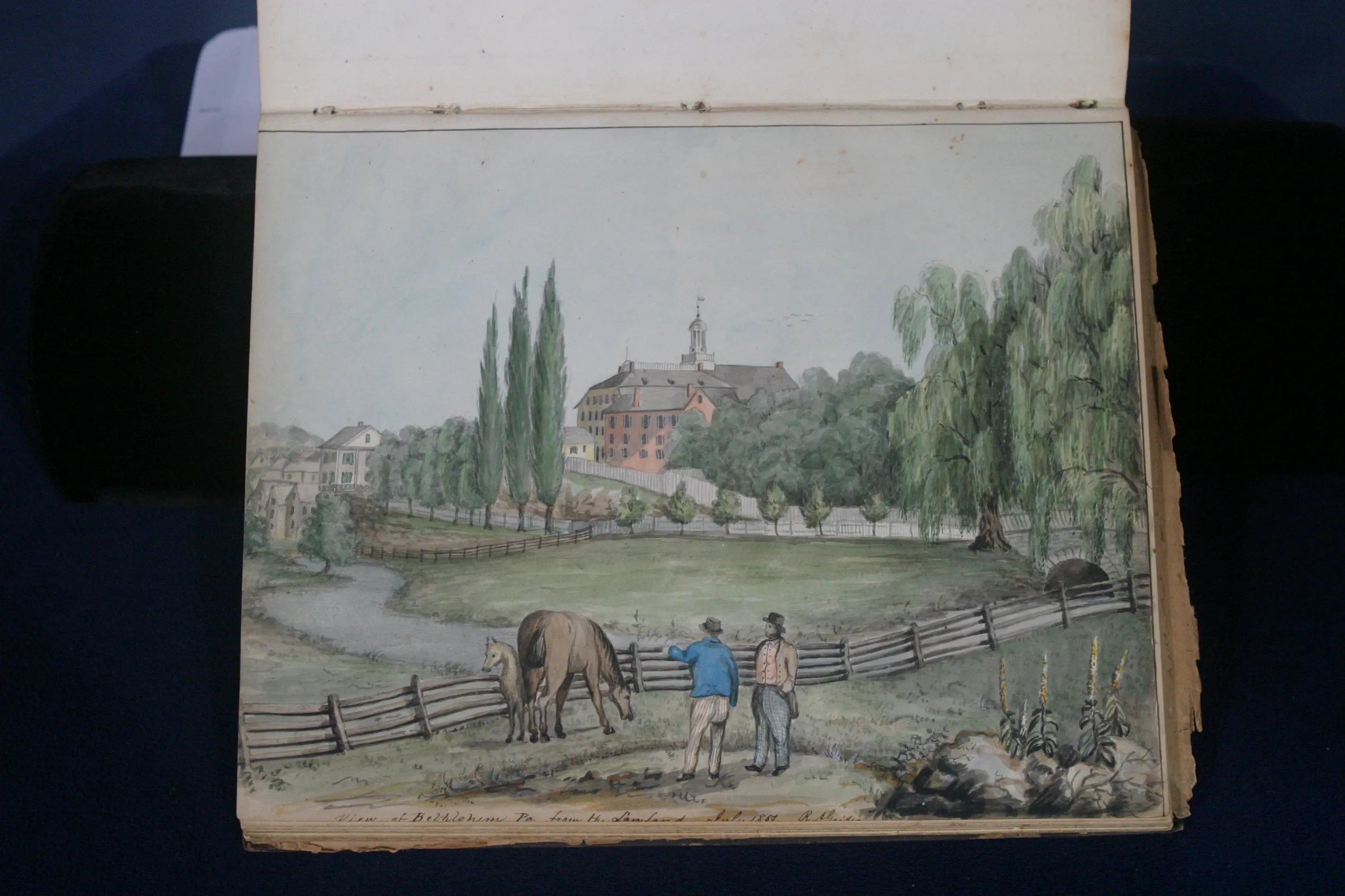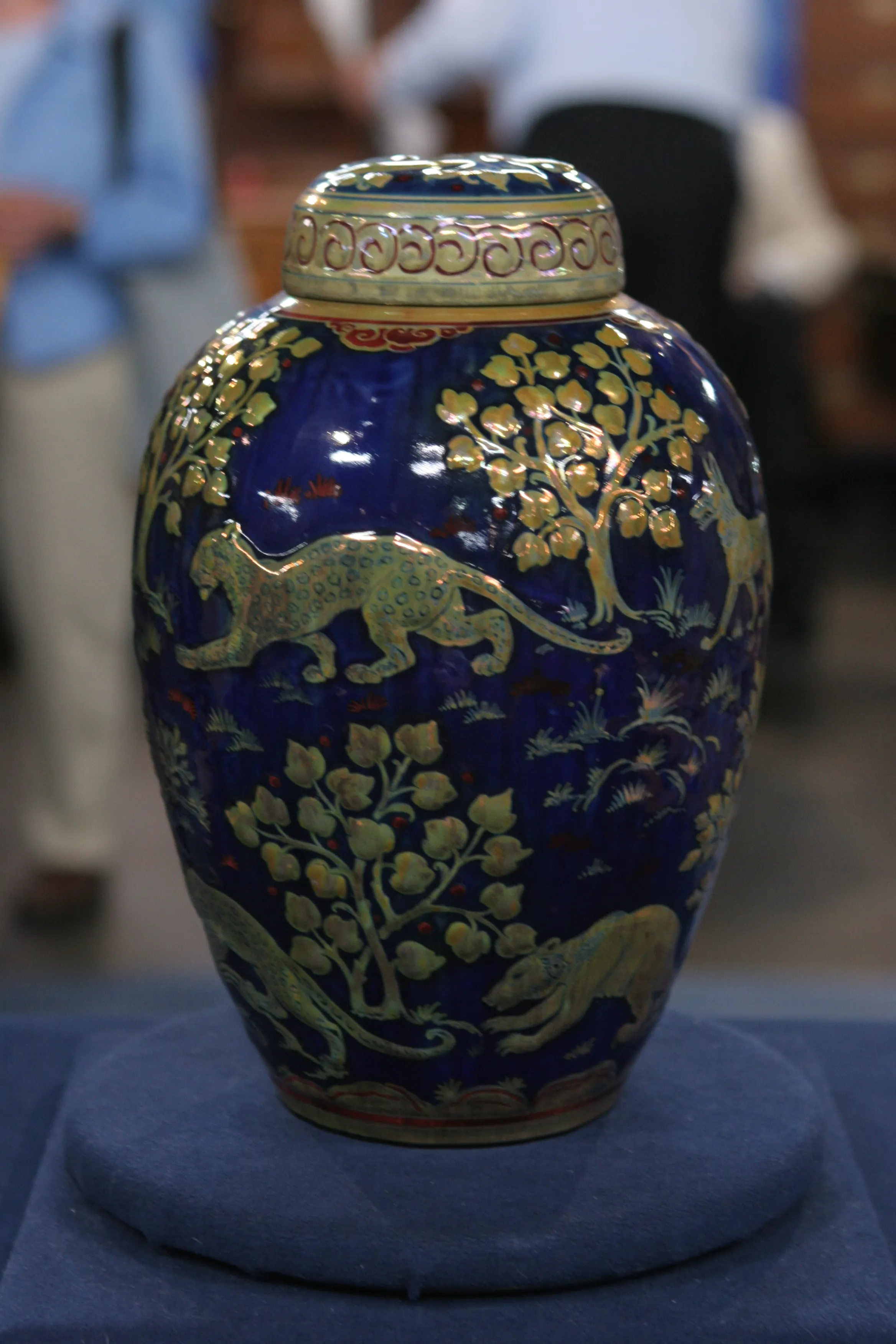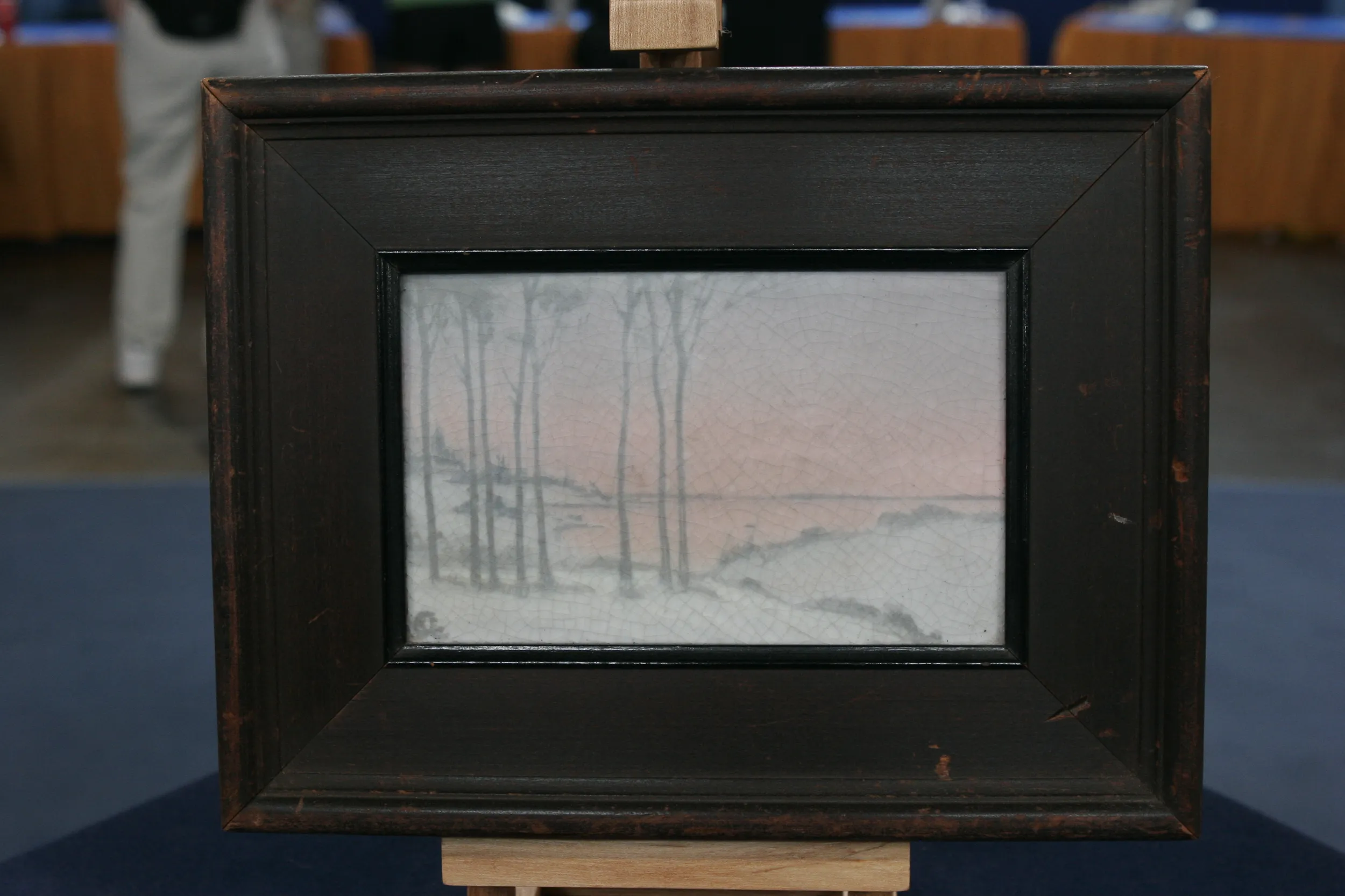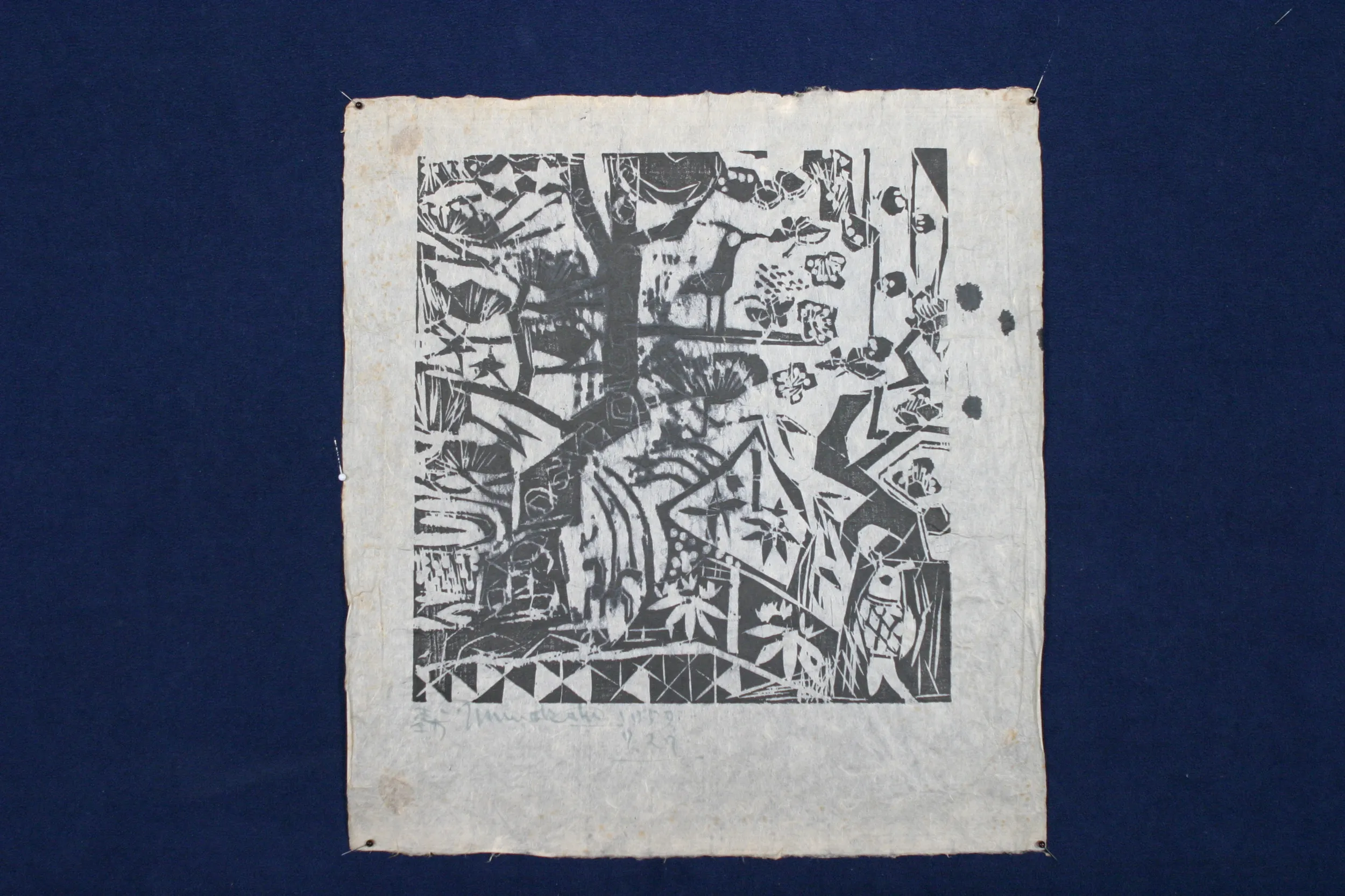F. Douglass Letter & Free Will Baptist Church Archive
GUEST: I brought you a series of letters that were signed by abolitionists. They were invited to the 100-year anniversary of the Free Will Baptist Church, and the letters in the back are those that could not attend the ceremony in Weare, New Hampshire. I inherited it from my father, who inherited it from an elderly gentleman he b, befriended. When the gentleman passed away, my father inherited the house, and he was going to sell all the contents. And I was allowed to go through the house. And I was a big collector of New Hampshire stuff. And I saw this, and it was New Hampshire, New Hampshire history, so...
APPRAISER: The title of this book is The Centennial Record of Free Will Baptists, 1780 to 1880. It was published in 1881, and it's a record of the convention, or the celebration, that the Free Will Baptist Church held in 1880 to celebrate 100 years from their founding. This copy seems to belong to a gentleman named William Foss, who may have been an attendee or, or an organizer of the convention. He collected all of these things and put them together, like a scrapbook. The Free Will Baptists are a denomination within the Baptist Church. It was an important abolitionist organization. Not only did they agitate to end slavery in America, they also provided important assistance to enslaved people after they escaped from the South and moved upwards through New England. And in the back are bound in several things. There are some photographs. I love this photograph of the building of the Free Will Baptist Church that was built in 1819. And then, as you said, several letters from really prominent abolitionists are bound in. People who were invited to this ceremony, but for one reason or another were not able to attend. The first one is from Frederick Douglass, who is one of the most prominent abolitionists, a former slave who became one of the most prominent writers and speakers of the abolitionist movement. And he was invited to come. And he was older then and not able to make it, but he wrote this incredible letter in which he specifically said, "When I escaped from slavery 42 years ago and sought liberty in New England, the Free Will Baptist churches were about the only churches open as a rule for the advocacy of the cause of the slave. You were not ashamed of the Negro's cause when it was hated and despised, when he was persecuted and mobbed from city to city." It's a two-page letter, and you can see his signature down here. Right behind Frederick Douglass is a letter from Harriet Beecher Stowe, who's the author of Uncle Tom's Cabin. She was also invited, could not make it. She asked if she could send her son, and she mentions that, "My son, Reverend Charles E. Stowe, was an infant when Uncle Tom's Cabin was written. He scarcely knows what the conflict was because the victory came so early." She also talks about having used the records of the Free Will Baptist Church to write The Key to Uncle Tom's Cabin, which was the follow-up book. There was a lot of criticism of Uncle Tom's Cabin-- that it couldn't be based in fact, it was fictionalized and romanticized, and therefore not something we should take seriously. And so she wrote another book to say, "No, here is the evidence that supports the drama that I included in my book. I have not forgotten and should not forget the comfort it was to me, when making the investigations needed for writing The Key to Uncle Tom's Cabin, to come upon the record of the Free Will Baptists and see how they honored Christ in the person of his poor afflicted ones." And there's also a letter from James Garfield. His letter is not as exciting, because he basically says, "I'm, I can't attend, I'm too busy." But he was too busy because he was running for president. (both chuckle) This is really a terrific memento of the abolitionist movement. The Frederick Douglass letter, even though this letter is a little bit later in his career, the fact that he mentions his escape from slavery puts this letter in a much higher tier. It's not hard to find something signed by Frederick Douglass, right? There are all of these government documents that are signed by him. It is hard to find a letter in which he talks so eloquently about his struggle and about the people who helped him along the way, which this does. At auction, I would put the Frederick Douglass letter... If, if you just had it by itself, the Frederick Douglass letter would be $50,000 to $70,000. (both chuckle) Right? The Harriet Beecher Stowe, also very popular, would be $3,000 to $5,000. And the rest of the materials would probably be another $2,000 to $3,000. So at auction, the entire book, I would say $55,000 to $75,000. If you wanted to insure it, you should put it at a minimum of $110,000.
GUEST: (breathes deeply) Deep breath. (chuckling)
APPRAISER: Deep breath.
GUEST: (voice trembles): Thank you. Thank you very much.
APPRAISER: You're welcome.
GUEST: A lot more than I thought.
APPRAISER: It's a big deal, it's a really big deal. It's such an incredible piece of American history. I love it.

$55,000 Auction
$110,000 Insurance
Photos
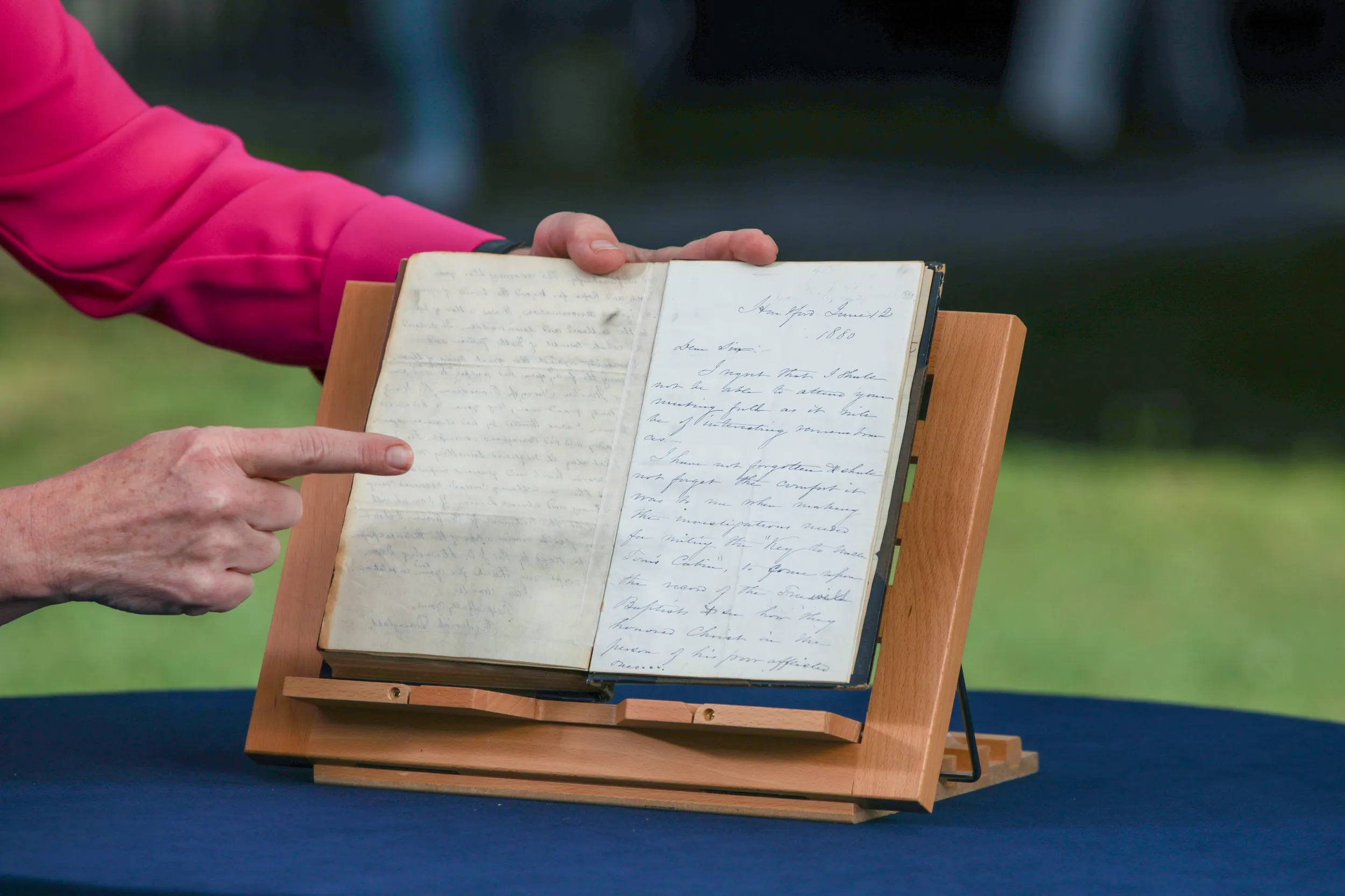
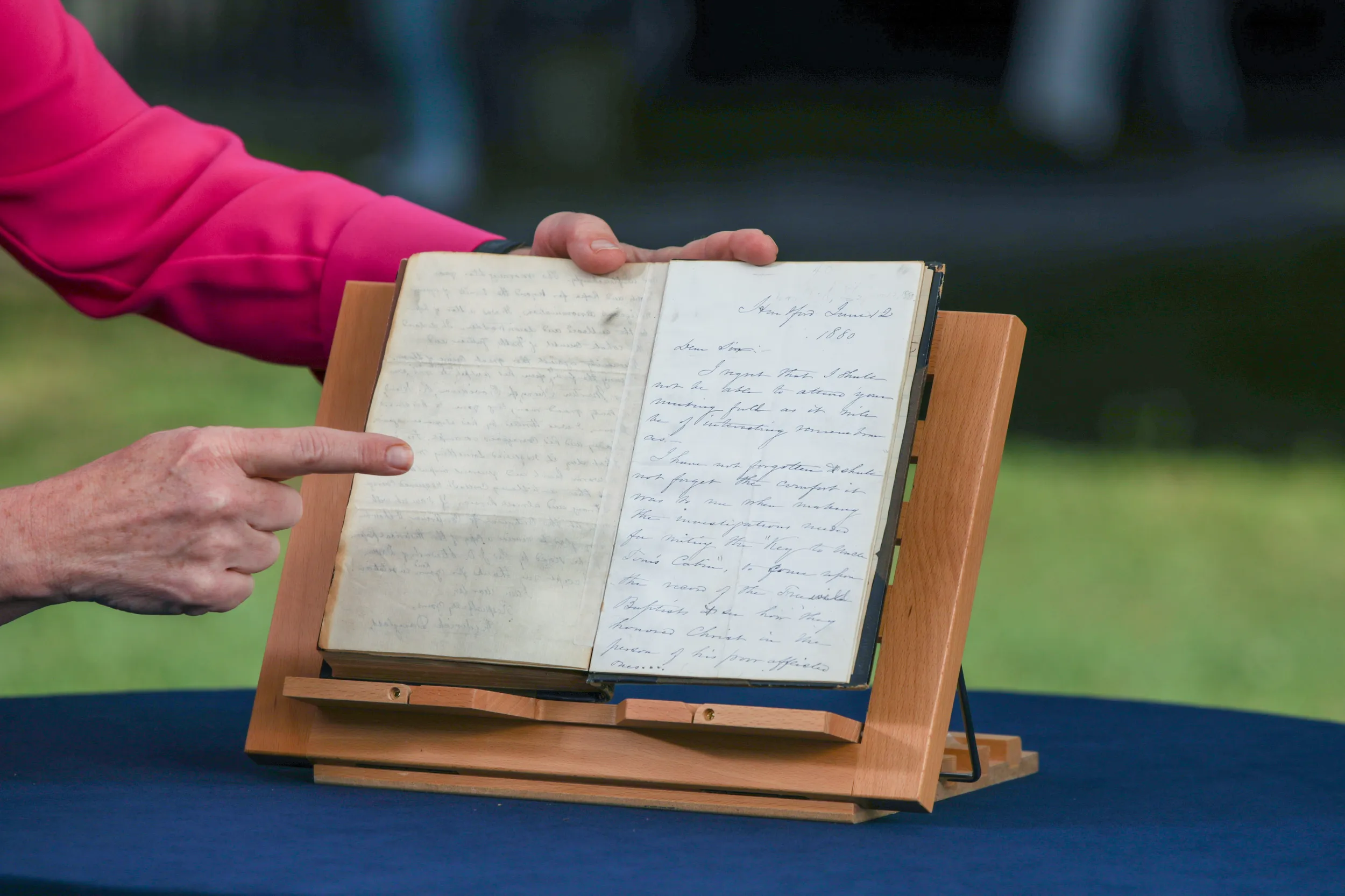
Featured In
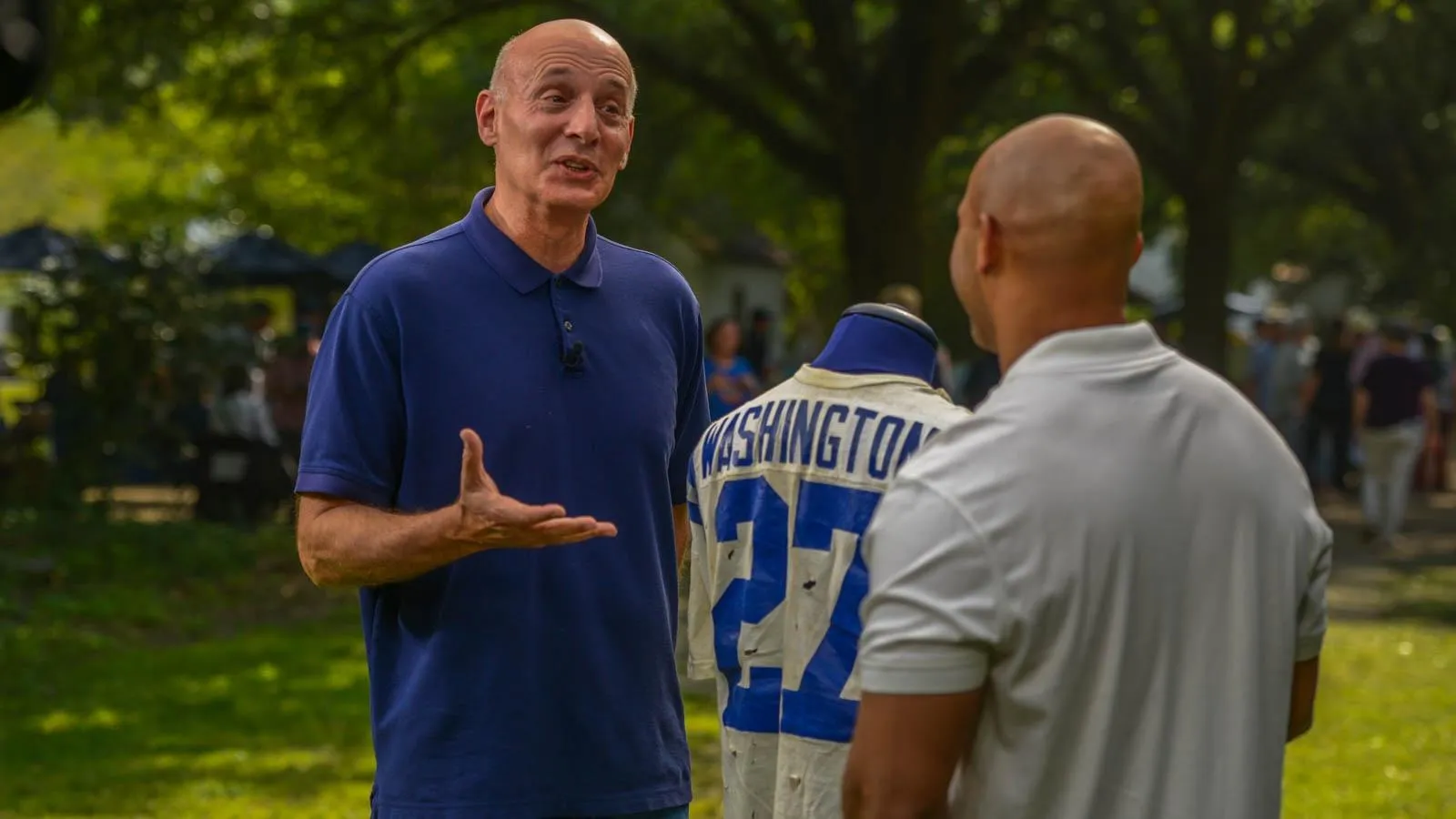
episode
LSU Rural Life Museum, Hour 2
Head to Louisiana’s capital for captivating appraisals, including a find up to $110,000!
Fine Art
Understanding Our Appraisals
Placeholder
